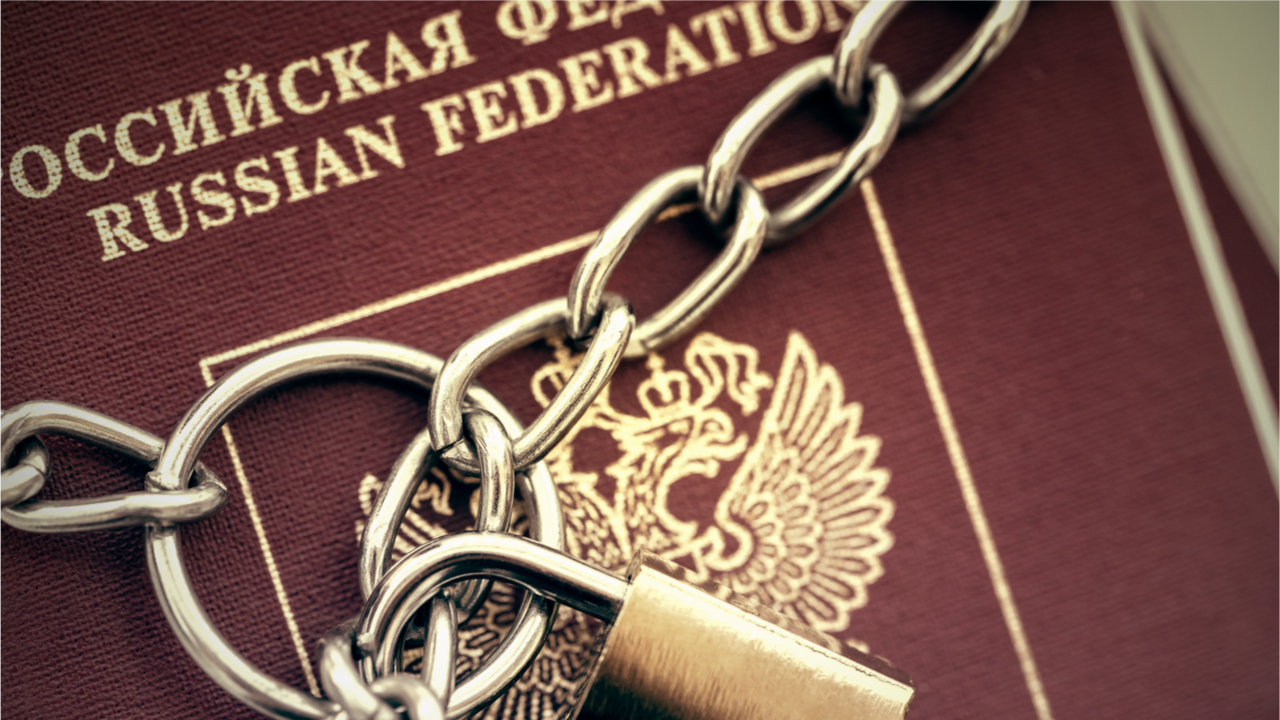
The cryptocurrency exchange Coinbase has addressed the company’s procedures toward complying with sanctions in a blog post published on Sunday. The crypto firm says that respecting sanctions plays a “vital role in promoting national security” and the acts can help deter “unlawful aggression.”
Coinbase Intends to Comply With International Sanctions, Chief Legal Officer Says ‘Digital Assets Have Properties That Naturally Deter Sanctions Evasion’
Following the statements of the two chief executives from two of the largest crypto exchanges on the planet, Coinbase has published a blog post concerning the company’s goals toward promoting sanction compliance. The post was written by Coinbase’s chief legal officer Paul Grewal and it touched upon the current conflict in Ukraine. Essentially, the gist of the article highlights that “Coinbase is committed to complying with sanctions.”
“In the past few weeks, governments around the world have imposed a range of sanctions on individuals and territories in response to Russia’s invasion of Ukraine,” Grewal’s post details. “Sanctions play a vital role in promoting national security and deterring unlawful aggression, and Coinbase fully supports these efforts by government authorities. Sanctions are serious interventions, and governments are best placed to decide when, where, and how to apply them.”
The Coinbase executive’s post further explains that crypto assets have specific “properties that naturally deter common approaches to sanctions evasion.” This is due to the fact that most blockchains are public, auditable, and traceable. As far as traceability is concerned, Grewal says when applied to public blockchain data, “analytics tools offer law enforcement additional capabilities.” Moreover, blockchains have permanence, Grewal’s blog post summarizes, as the chief legal officer states:
Once recorded on the blockchain, transactions remain immutable. No one (not crypto companies, not governments, not even bad actors) can destroy, alter, or withhold information to evade detection.
Coinbase Has Blocked More Than 25,000 Addresses Tethered to Russian Individuals and Entities
The Coinbase blog post is very much aligned with the large number of corporate entities complying with sanctions and cutting ties with Russia. Over the last 13 days, companies such as Netflix, Apple, Google, Tiktok, BP, Exxon, Equinor, Shell, Boeing, Airbus, Ford, Renault, Mercedes-Benz, Toyota, Visa, Mastercard, American Express, Dell, Meta, Ikea, and Nike have complied with international sanctions or cut ties with the Russian Federation.
Grewal notes in the company blog post that sanctioned individuals or entities are checked for during the onboarding process at Coinbase. The crypto company leverages sanction lists “maintained by the United States, United Kingdom, European Union, United Nations, Singapore, Canada, and Japan.” Additionally, Coinbase has sophisticated technology that can anticipate threats, Grewal disclosed.
“Coinbase maintains a sophisticated blockchain analytics program to identify high-risk behavior, study emerging threats, and develop new mitigations,” the firm’s chief legal officer said. Presently, the exchange blocks thousands of blockchain addresses related to individuals or entities stemming from Russia. Grewal’s post explains:
Today, Coinbase blocks over 25,000 addresses related to Russian individuals or entities we believe to be engaging in illicit activity, many of which we have identified through our own proactive investigations. Once we identified these addresses, we shared them with the government to further support sanctions enforcement.
The Coinbase executive ends the post by saying the firm aims to help people protect and build wealth, but at the same time “security, safety, and transparency” are important foundations. “Our commitment to sanctions compliance” is part of the process, the Coinbase blog post concludes.
What do you think about the Coinbase blog post regarding the company’s commitment to sanction compliance and how it has blocked 25,000 addresses stemming from illicit Russian activity? Let us know what you think about this subject in the comments section below.












